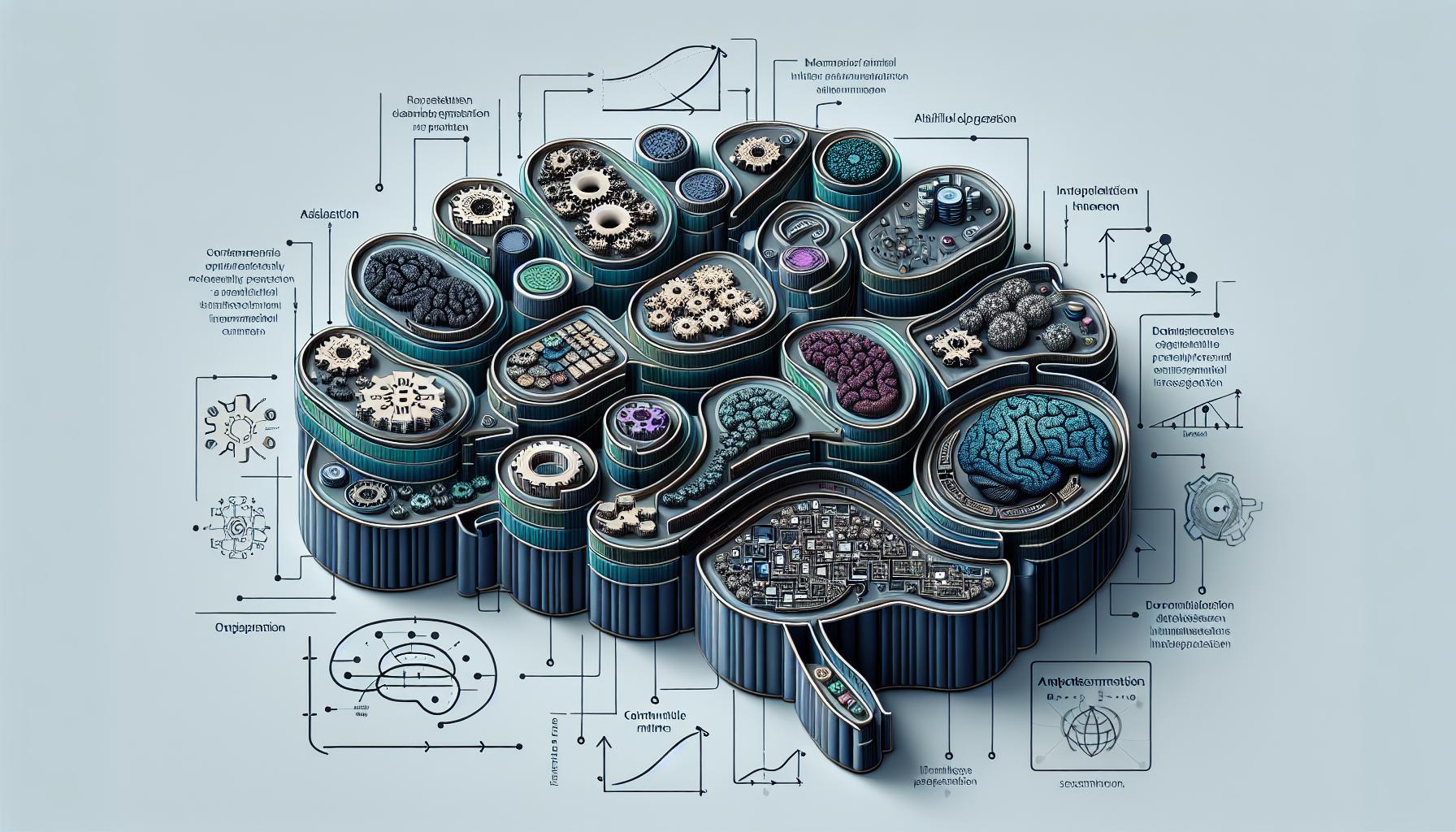Lifelong Learning in AI: Integrating Continuous Memory

Introduction
The field of Artificial Intelligence (AI) is evolving rapidly, pushing the boundaries of what machines can achieve. One of the most critical advancements in AI is the concept of lifelong learning, which allows systems to progressively accumulate knowledge, adapt to new information, and enhance their reasoning abilities over time. This blog delves into how lifelong learning is implemented in AI systems through continuous memory integration, highlighting its techniques, benefits, and potential applications.
Understanding Lifelong Learning
Lifelong learning in AI refers to the ability of an artificial system to continuously learn from its experiences throughout its lifetime. Unlike traditional AI models that are trained on a fixed dataset and remain static, lifelong learning enables AI to adapt to new data and situations without forgetting previous knowledge. This approach mimics human learning, where we constantly acquire and integrate new information, helping us to become more adept and versatile over time.
To effectively implement lifelong learning, AI systems must overcome the challenge of catastrophic forgetting, where new information overwrites previously learned knowledge. Continuous memory integration offers a solution, ensuring that AI can retain, recall, and build upon past experiences while embracing new knowledge.
Techniques for Continuous Memory Integration
Elastic Weight Consolidation (EWC)
Elastic Weight Consolidation (EWC) is a technique designed to mitigate catastrophic forgetting in neural networks. EWC works by selectively slowing down the learning rate of significant weights in the network. These significant weights, which form the foundation of the AI's prior knowledge, are less susceptible to change when new data is introduced. This allows the system to learn new tasks while preserving important past information. In essence, EWC helps AI to maintain a balance between plasticity (learning new information) and stability (retaining old knowledge).
Progressive Neural Networks (PNNs)
Progressive Neural Networks (PNNs) offer another approach to continuous memory integration. Unlike traditional neural networks, PNNs add new neural units for each task the AI encounters. These new units are connected to previously learned tasks, ensuring that past knowledge is retained and leveraged for future learning. PNNs facilitate transfer learning, where knowledge gained from one task improves performance on related tasks. By expanding the network architecture and linking new tasks with existing knowledge, PNNs create a more adaptable and robust AI system.
Importance of Continuous Memory in AI
Continuous memory integration forms the backbone of lifelong learning in AI, offering several key benefits:
- Improved Adaptability: AI systems equipped with continuous memory can adapt to new environments and tasks more efficiently. This adaptability is crucial in dynamic and evolving contexts where the AI must respond to changing data and requirements.
- Enhanced Decision-Making: With the ability to retain and recall past experiences, AI can make more informed decisions. This results in higher accuracy and reliability in various applications, from autonomous driving to medical diagnoses.
- Resource Efficiency: Continuous memory techniques like EWC and PNNs optimize resource usage by preventing the need to retrain AI models from scratch for each new task. This results in faster deployment and lower computational costs.
Applications of Lifelong Learning and Continuous Memory
Personalized Customer Experiences
Lifelong learning enables AI systems to deliver highly personalized customer experiences. By continuously integrating customer interactions and feedback, AI can tailor recommendations, support, and services to individual preferences and needs. For example, an AI-powered e-commerce platform can refine its product suggestions based on a user's evolving tastes and purchasing history, resulting in a more engaging and satisfying shopping experience.
Adaptive Learning Platforms
In the realm of education, adaptive learning platforms powered by lifelong learning can revolutionize the way students engage with educational content. These platforms can continuously assess a student's progress, learning style, and knowledge gaps, dynamically adjusting the curriculum to provide the most effective and personalized learning path. Lifelong learning ensures that the AI remains responsive to each learner's needs, fostering better academic outcomes.
Knowledge Management Systems
Knowledge management systems (KMS) benefit significantly from continuous memory integration. By retaining and organizing accumulated knowledge, these systems can support organizations in making more informed and strategic decisions. An AI-driven KMS can analyze historical data, identify patterns, and provide insights that help businesses optimize operations, innovate, and stay competitive in their respective industries.
Challenges and Future Directions
Despite the promising potential of lifelong learning and continuous memory integration, several challenges remain. One of the primary obstacles is developing algorithms that can efficiently balance plasticity and stability without compromising performance. Additionally, ensuring that AI systems can seamlessly integrate knowledge from diverse and unstructured data sources is an ongoing area of research.
Future directions in this field focus on enhancing the scalability and robustness of lifelong learning models. Researchers are exploring hybrid approaches that combine different techniques, such as EWC and PNNs, to create more versatile and efficient AI systems. Furthermore, advancements in neuromorphic computing and brain-inspired architectures are poised to drive significant progress in lifelong learning, enabling AI to achieve human-like cognitive capabilities.
Conclusion
Integrating continuous memory through lifelong learning represents a significant leap forward in the development of AI systems. By enabling AI to progressively accumulate knowledge, adapt to new information, and improve its reasoning abilities, continuous memory integration paves the way for more robust and adaptable AI applications. From personalized customer experiences to adaptive learning platforms and knowledge management systems, the benefits of lifelong learning are far-reaching and transformative.
As research continues and new techniques emerge, the potential for creating AI systems that can learn and evolve throughout their lifetimes becomes increasingly attainable. Embracing these advancements will undoubtedly lead to a future where AI plays an even more integral role in enhancing various aspects of our lives.




